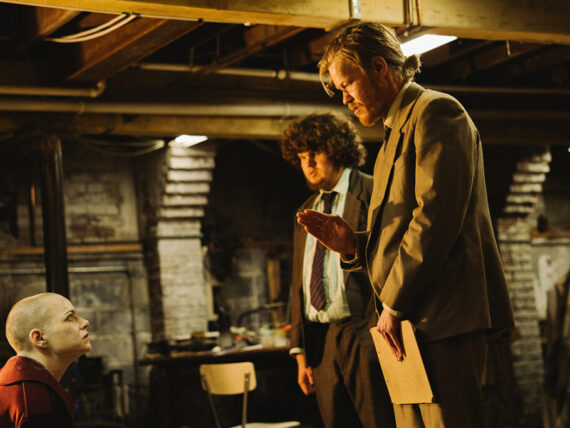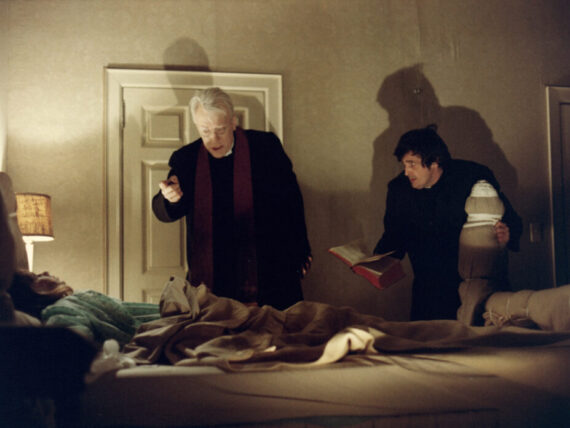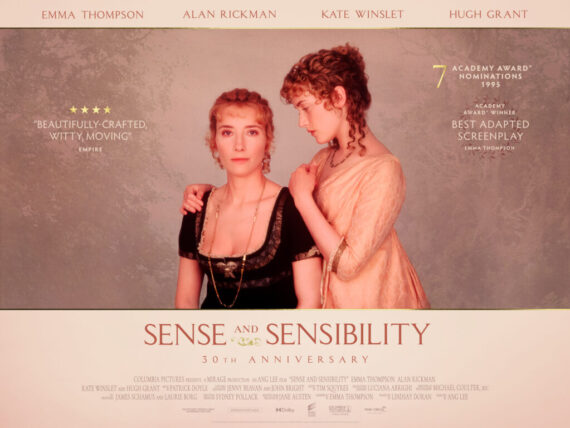The winner of this year’s Oscar for Best Foreign Language Film, ‘Son of Saul’ tells the story of Saul Auslander, a Hungarian Jew working at Auschwitz as a Sonderkommando.
A German word that does not directly translate into English, ‘Sonderkommando’ was the name given to prisoners who were put to work in the crematoriums. It was a task that while buying them a few extra months of life, exposed them to the very worst of the atrocities.
They assist with the exterminations, working at great haste. It is 1944, and with the Allied Forces drawing ever closer, the Nazis are under pressure to finish what they have started.
The Sonderkommandos, themselves on borrowed time, are planning a revolt. A small quantity of gunpowder is smuggled into camp, and Saul provides cover whilst a fellow inmate takes photographs of the horror. An uprising is planned, but Saul’s attention is elsewhere.
Whilst working in the crematorium, Auslander (played by Geza Rohrig) sees the body of a young boy he takes to be his son. The body is spared cremation, as it is wanted for autopsy. Saul becomes obsessed with having the body blessed by a Rabbi and buried.
In Saul’s attempt to get the body buried, he takes enormous risks – both with his own life and those of his fellow prisoners. Although never explicitly stated, it becomes apparent that the ‘son’ is not his by blood, but a boy that becomes an opportunity to perform a rare act of kindness. As Saul becomes ever more desperate, it is clear that he believes this act will bring him some kind of moral absolution.
Through the film, we descend with Saul into a hell that would be beyond imagining – if we did not already know it so well. The work of the camps is made all the more horrifying for its use of jargon. Bodies become ‘pieces’, a man or woman becomes ‘it’. The deliberate and cohesive dehumanising makes Saul’s bid for normality all the more understandable.
The film then focuses not on the terror happening around Saul, but his grasping at the last embers of his humane self. He has become numb to everything around him (even the uprising), and the boy offers Saul not a chance to escape the camp, but to escape himself.
A film such as this is dependent on the performances of its cast, and while a mention has to be made of the difficult work done by the large supporting cast, the film’s success rides on its central character.
What is remarkable about the casting is that another actor was meant to play Saul. Geza Rohrig is a Hungarian poet living in Brooklyn, and a friend of the director Laszlo Nemes, and it was Nemes who invited Rohrig to audition for a supporting role. The role of Saul was all but cast, but Rohrig’s audition was so accomplished, the crew decided to cast Rohrig in the lead role instead. Rohrig has not acted on camera since a television series in the 1980’s – this is his feature film debut, and it’s a debut without precedent. In watching the film during its harrowing first minutes, it becomes obvious why the decision was made to cast Rohrig. His performance is intuitive and delicately-wrought; the camera takes in everything Rohrig offers. While dialogue is very sparse in this film, Rohrig’s blank, disengaged stare takes you to the very root of the character. His portrayal of Saul Auslander is perfection, it’s just that simple. It’s a performance you would expect from a seasoned actor, thirty years into their career.
‘Son of Saul’ is a film of firsts: it also marks director Laszlo Nemes’ film debut. Praised by Steven Spielberg and Claude Lanzmann, the confidence Nemes applies to his technical choices proves revelatory: the film is shot using a 40mm lens, which creates a very shallow depth of field. The close-ups, as a result, are Holbein-like in their ability to capture physical and psychological detail. It also ensures we stay within Saul’s own field of vision and hearing. We see and hear everything through him. This technique lends the film a sense of urgency, an immediacy that echoes the Sonderkommando’s existence, living moment to moment.
Nemes, along with his cinematographer Matyas Erdely, made the decision early in pre-production not to reveal too much of the detail of the crematorium. Not only is the scale of the horror notoriously difficult to lay down on film, but the focus has to remain on Saul. As a result, the atrocities are always slightly out of focus, off-centre. We are intensely aware of what is happening, but we experience it as Saul does. It is a half-recognition, blunted by Saul’s emotional paralysis. But the sounds do not escape us. The sound team do a phenomenal job of layering dialogue in German, Yiddish and Hebrew with the grotesque roars of the Crematorium. The monstrous sounds of the Crematorium become a continuous, unsettling presence throughout the film, underscoring the living nightmare Saul finds himself in. You may not see, but you certainly hear. It’s a brilliant cinematic device, and it stays with you, long after the credits have rolled.
It’s the decision to focus on one character that makes this film so different – it is by no means the obvious narrative choice. The Sonderkommando uprising at Auschwitz-Birkenau in October 1944 is told here, but our protagonist’s role in the plotting is half-hearted. He is on a different journey. There are no happy endings; this is not a film of escape and triumph, and threads of storyline are left unresolved and unsatisfied. The editorial decision by screenwriter Clara Royer (also making her feature debut) to keep our attention on a single character and his search for moral salvation makes ‘Son of Saul’ not only a great film, but an important one.
By focusing on an individual, ‘Son of Saul’ removes our distance as an audience – it’s difficult to remain objective when you’re witnessing events through one person. It does not make for a comfortable experience, but ‘Son of Saul’ vividly re-draws history from a fresh perspective.
‘Son of Saul’ is by no means an easy film to watch, but I would not hesitate in recommending it to you. As an audience, we are asked to re-assess our perception of the Holocaust by putting the individual back at its centre. In narrowing in on the individual, Nemes articulates fear with depth and clarity.
‘Son of Saul’ is a truly extraordinary achievement; it’s challenging and difficult – but if there’s a better film I’ve seen this decade – I’m struggling to remember what it is.








Comments
No comment yet.